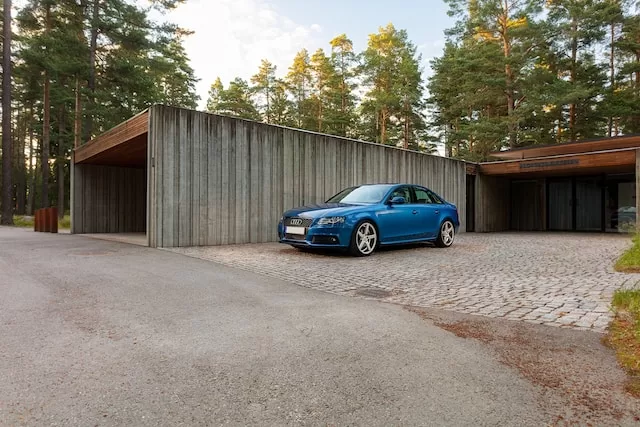Auto
How To Research A Used Car

For many people, buying a used car is even more of an adventure than getting one brand new. Used vehicles tend to offer considerably more value for money, opening up the opportunity that you could bag a bargain.
Most cars lose between 30% and 50% of their value in the first five years. Roadworthy fixer-uppers with less popular colors or makes can have even bigger discounts, and we’ve not even talked about mileage yet!
But how do you get the very best deal? That’s the topic of this post. We explore all your options and the stages you need to go through to find the ideal used car for your purposes.
Start By Setting A Budget
When it comes to researching used cars in stock, it can be tempting to put the slider to the maximum and salivate over the second-hand Ferraris and Lambos for sale. But try not to fall into that trap if you can help it. Budget creep is real, and you may find yourself trying to spend more than you can afford.
Instead, sit down and think about what you really want to pay for a used car. Then take a look at the types of vehicles you can get for that money.
Remember, used cars are often dramatically cheaper than their brand-new counterparts. That means you can get a luxurious ride for a fraction of the original cost (even when you include inflation).
Just be wary if you see an ultra-luxurious car from the past selling at a major discount. The upkeep can be enormously expensive, even if the upfront price is low.
Study
The next step is to study various sources to find out how much the car will actually cost to buy. Don’t assume you know the price after consulting a single website. Look at classified ads, car listings, and online dealerships. Make sure you go to sites that compare the price of vehicles from multiple sources to determine whether you are getting the best deal. Avoid the temptation to simply go with the first person you meet selling the car you want. Almost always, doing your homework and putting effort into studying the market will help you.
Perform Vehicle History Checks

Source: Unsplash
If there’s a particular model you want to buy, make sure you do all the usual vehicle history checks. Check all the documentation and ask the person selling it to provide a service history, showing you the work done on the vehicle. If you live in a country that requires annual vehicle checks, ensure these are complete, too.
If a vehicle’s paperwork isn’t complete, it could mean more than some hefty repair bills. If the owner is actually someone else, not the person selling it, law enforcement may confiscate the vehicle and take you in for questioning. Always be careful and, if in doubt, go to a verifiable dealer.
Read The Reviews
Besides looking high and low on used car sales sites, you should also read the reviews of the original vehicle. Find out whether other drivers thought it was any good and whether you should invest in it
Reading the reviews can provide you with a lot of information about whether the car is the right choice for you. You might like the price and how the vehicle looks, but if the luggage compartment is too small or it doesn’t accommodate the right tow bar, it could be the wrong choice.
Reviews can also hint at the vehicle’s quality. The best vehicles should easily last 150,000 miles and probably more, so look for two, five, and ten-year follow-ups, if applicable.
You can also research average maintenance cost statistics for your make and model. Again, these can reflect the reliability of the car and how much the average owner has to spend on it.
Check How Much It Will Be Worth In The Future
Checking the resale value of any vehicle is challenging because you don’t really know until you come to sell it. However, you can get hints about what your car is worth by looking at how much older models and similar vehicles from other brands sold after a certain age and mileage.
When it comes to used cars, mileage tends to be the most critical factor. Many older vehicles sell for a similar price to newer ones if the number of the odometer is low.
Therefore, take the number of miles you’ll travel every year into consideration to estimate your vehicle’s total mileage after, say, five years. Then cross-check this with the value of vehicles that have driven this distance. You can then subtract this number from the sale price of the vehicle today to get the expected depreciation (the money you’ll lose over time).
If you’re buying a cheap car, this figure is usually small and doesn’t matter a great deal. However, if it is an expensive car, it matters more.
Find Reputable Sellers
You’ll also want to search for reputable sellers. You can buy from private individuals, but it comes with risks, especially if you don’t understand the paperwork fully.
Reputable sellers often have fixed locations in towns and cities. Established dealerships have dozens of cars on the forecourt and hundreds of positive online reviews. Professionals also offer a warranty, and many will provide your used car with a basic service before you drive it off.
If you see a deal that seems too good to be true, avoid it. The car might have been written off or it may not have paperwork to prove the person selling it owns it.
Remember, vehicle crime is more likely with older vehicles because they have fewer security features. Keep your wits about you.
Inspect It Pre-Purchase
Similar to a house, you can also get a pre-purchase inspection on a car. Here, a trained mechanic takes a look over the vehicle and tells you whether they think there are any serious issues with it before you buy it.
Inspections can reveal all sorts of things, from broken spark plugs to rattling brake calipers. The mechanic will usually provide you with a list of problems and the cost associated with fixing them. Some issues don’t require any immediate intervention, but many others do.
Take It for A Test Drive
You’ll also want to take any used car you intend to buy for a test drive. A short run around the local area tells you whether it is something you want to drive and whether it feels right to you. It will also reveal any issues, like a loose clutch or grinding gears.
When test-driving the vehicle, check all its features. Make sure the windscreen wipers work and that the radio turns on. Check the seat movement and inspect all the lights to ensure they are road legal.
When activating the jet wash for the rear windscreen, make sure cleaning fluid doesn’t spray onto your knees from a broken line under the steering column. Also, look for mold or signs of pest infestation on the upholstery.
Negotiate The Price

Source: Unsplash
Once you have all the information you need, you are in a position to negotiate the price. Most car dealers will try to charge a significant markup over the true market value of the vehicle, but many are also willing to flog vehicles cheaply if it means freeing up space in their inventory.
If the car doesn’t have complete service history documentation, point this out and ask for a better deal. Also, check the identity of the previous owner and run the car’s registration through a police database. Usually, it will be able to tell you if it is lost, stolen, or written off.
Most people selling cars are trying their luck, seeing how much you will pay. Therefore, always press them on the price and see if they are willing to budge. If they do, it usually means they are charging a markup. Don’t try to go too low, though, because they may decide to hold out and sell the vehicle to someone willing to pay more.
Take Some Time Out
Don’t rush into a new vehicle purchase immediately. Instead, sleep on it and consider whether it is the best option for you.
You’ll often find that a good night’s rest provides you with a different perspective on a purchase. Sometimes, it gives you closure and peace. Waking up, you know you are making the right decision. Other times, it reminds you that you are doing something foolish with your money and should stop.
Complete All The Paperwork
If you decide to go ahead with a vehicle purchase, you need to complete all the paperwork to ensure it is yours. You’ll need to make the full payment to the owner and arrange financing separately. Most dealers don’t offer in-house finance products.
The final step is to transfer ownership. Dealers and private sellers do this by adjusting the name of the ownership form and filing it with the relevant authorities.
Congratulations: now you’re the proud owner of a used vehicle.






















































